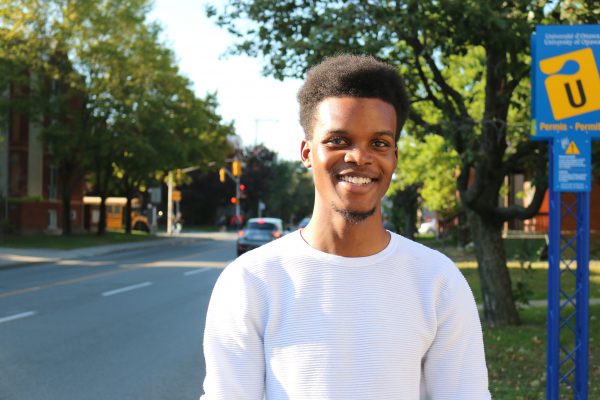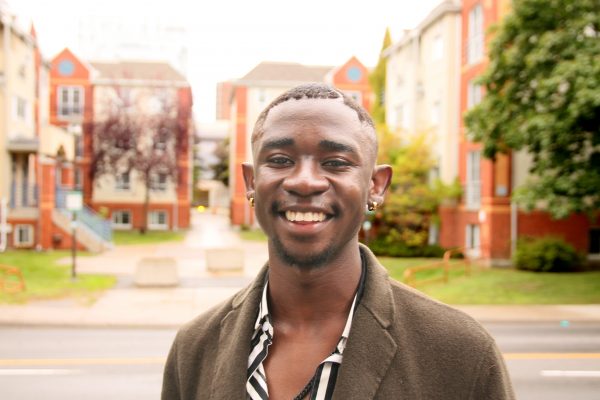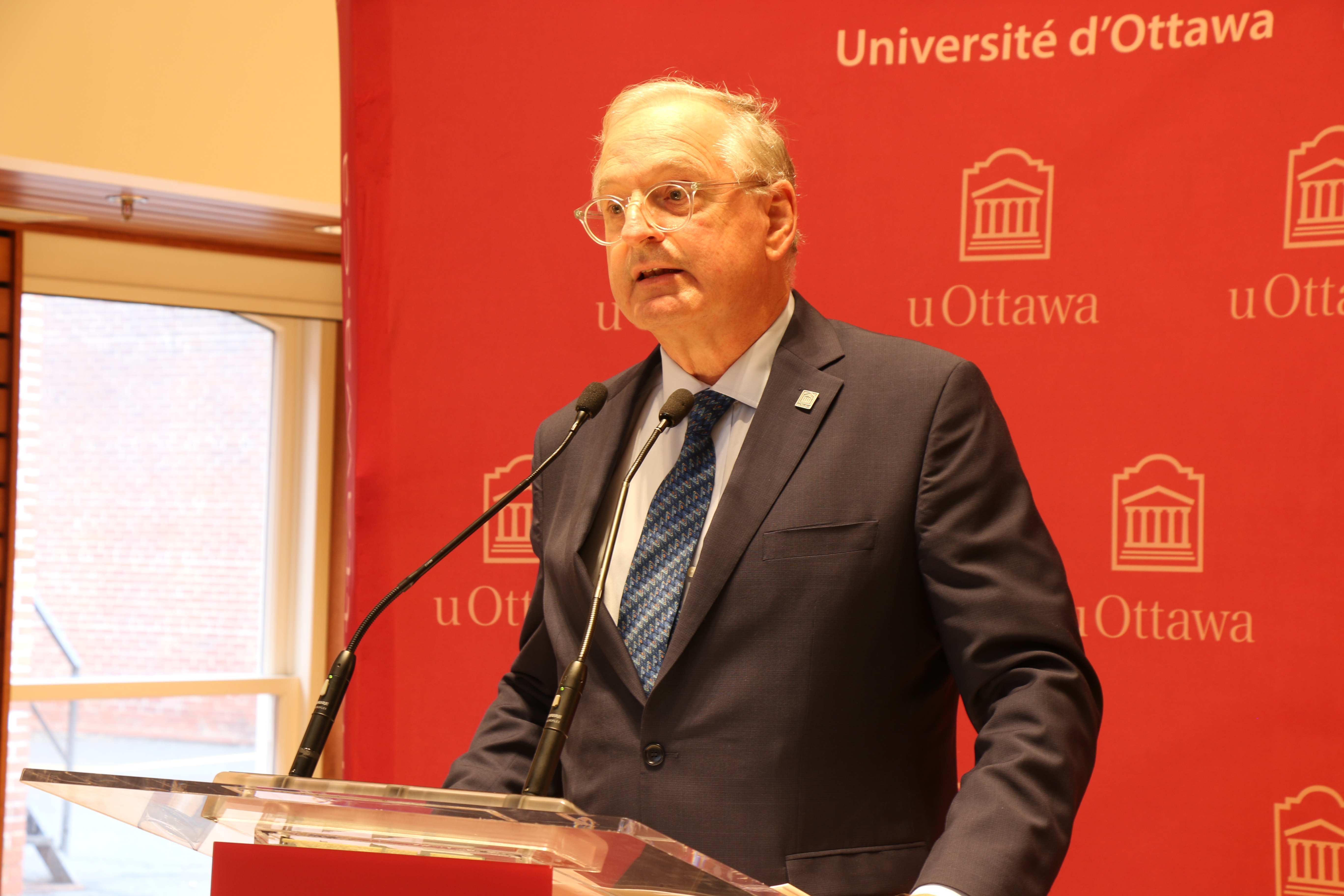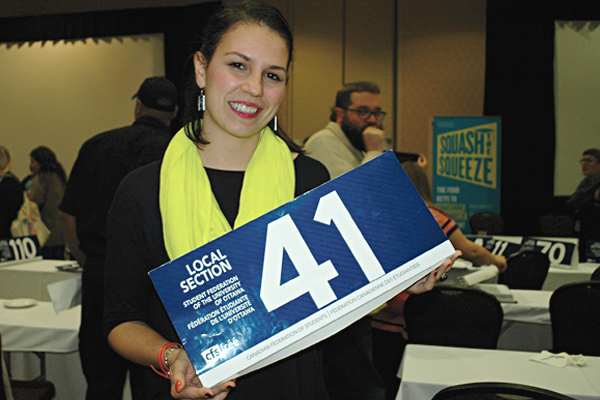Inadequate training and procedures played role in June incident, report says
The Black University of Ottawa student who was carded by Protection Services in June faced racial discrimination, an independent investigation into the incident has found. Race, insufficient training, and outdated procedures played a role in the way the student was treated, according to the findings released on Tuesday.
Investigation into Carding,… by Matt Gergyek on Scribd
Jamal Boyce, a conflict studies and human rights student and a vice-president of his program’s student association, was detained by campus security on June 12 for over two hours.
Boyce recounted the incident in a series of Twitter posts on June 13, an experience he called “extremely humiliating” and “physical, mental, emotional violence.”
After letting them know that i didn’t have my wallet on me and trying to walk away they followed me, hit my phone to the ground as i tried to record, grabbed me and put me in handcuffs #blackoncampus @ctvottawa @uottawa pic.twitter.com/yQ7C7W2A1G
— Jamal (@Jamal_KB) June 13, 2019
Boyce was skateboarding on campus at the time and complied with officers’ requests for him to stop.
“Beyond that moment, there is no demonstrable reason why they required his identification, or to know his purpose on campus,” investigator and former vice-chair of the Ontario Human Rights Tribunal Esi Codjoe wrote in her report dated Sept. 13.
But when Boyce could not produce his student identification card campus security officers detained him under the Trespass to Property Act. Police were called but Boyce was released without being charged.
“Part of the reason why the … incident occurred is because the (Protection Services officers) have inadequate training on diversity issues,” Codjoe wrote. “It is more likely than not that the (officers) are not receiving any nuanced, or up to date training on issues pertaining to race, including racial discrimination.”
Without saying his name, U of O president Jacques Frémont publicly apologized to Boyce for the first time.
“I am deeply sorry for the way you were treated and for the humiliation you experienced,” Frémont said at the press conference on Tuesday where the findings were released. “It was unacceptable and wrong.”

Frémont apologized to the U of O community at large as well, especially to members of racialized communities.
“As a society, we are steadily increasing our understanding of how seemingly neutral administrative decisions can have disproportionately negative effects on racialized individuals and communities,” he said.
Frémont then touched on the four measures he introduced at the start of September to address racism and discrimination on campus, including the committee he struck to inform the steps the university takes. Frémont said he has met with Boyce and invited him to join that committee but wouldn’t say if Boyce has accepted.
The president also would not say if the officers involved in the incident are still employed by the university. “The issue is related to labour relations and we are not in a position to release any information concerning that,” he said.
“I continue to have full confidence in our Protection Services officers,” Frémont added. “For more than 50 years, they have successfully kept our campuses safe and have helped students, employees, and those visiting the campus in a wide range of challenging and often difficult situations.”
Wiliston Mason, a U of O student who was carded by a security officer in his own residence building just over two weeks ago, was at the press conference. The university has said that the officer works for a private firm and is now banned from campus.

Photo: Matt Gergyek/Fulcrum
“It’s unacceptable … to slap a Band-Aid solution on the incident that happened in June,” Mason told reporters, adding his experience just three months later means the anti-discrimination measures aren’t working. “In terms of really addressing the issues that are there, I’m not really seeing a real solution to any of the issues that have been raised.”
University of Ottawa Students’ Union student life commissioner Jason Seguya and equity commissioner Judy El-Mohtadi both said the university still has much work to do.
“It’s upsetting that it took this long for an apology and I hope this isn’t the only form of reconciliation they’re going to offer Jamal … I don’t think that’s adequate,” Seguya said.

“It really goes to show what that Black experience is: Once you grieve, once you bring forward these statements, that you really need concrete proof to show this was an experience of racism.”
“It’s a shame that they have to wait until an investigator came to say exactly what the student who experienced the racism said: ‘Hey, this is racial profiling,’ ” El-Mohtadi added. “The university doesn’t believe its students when they told them this is what we’re experiencing, this is what’s happening on your campus.”
El-Mohtadi reinforced the calls to action for the university that she first laid out in an interview with the Fulcrum on Sept. 19. They include transparent unconscious bias training for all members of the community, accountability measures when officers don’t abide by university policies, and the limiting of carding on campus to select and clearly defined instances.

The report from the second part of Codjoe’s investigation will be released sometime this fall, Frémont said. That report will look into the policies governing Protection Services — including Policy 33 on carding — were properly applied in Boyce’s case and are void of systemic impacts on racialized communities.
I’m at a press conference for @The_Fulcrum in Alex Trebek Hall where president Jacques Frémont is about to announce the results of an investigation into the carding and handcuffing of a Black U of O student in June by Protection Services. pic.twitter.com/oyfPmk7AyC
— Matt Gergyek (@mattgergyek) October 1, 2019
Read More:
- U of O student carded by security officer in his own residence building
- U of O implements anti-racism, anti-discrimination measures
- Students find gaps in U of O’s anti-racism, anti-discrimination measures
- U of O professor and PhD student share carding incident from 2017
- U of O launches racism inquiry after Black student carded, handcuffed by campus security
This story won a John H. McDonald Award for Excellence in Student Journalism (news reporting) at NASH 82: Empower.






